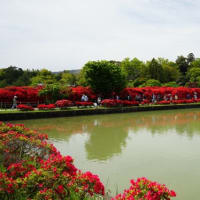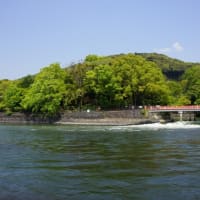The following is the continuation of the previous chapter.
Importantly, Abe is a strong supporter of U.S. strategic objectives and consistently utilizes Japan’s significant economic and diplomatic clout toward these same ends. Importantly, Japan’s Self-Defense Force, or SDF, is an advanced force and enjoys significant interoperability with U.S. forces.
While it is true that the U.S.-Japan alliance generally enjoys bipartisan support, Abe has strengthened ties in unprecedented ways. He has positioned Japan to play a more proactive security role through the establishment of new legal and policy frameworks.
In only five years, he drafted Japan’s first national security strategy; relaxed weapons export laws; reversed a decade-long trend of shrinking defense budgets; aggressively promoted international law in the maritime domain; invested in a diversified set of security partnerships with key regional states such as Australia, India, Vietnam and the Philippines; and expanded the roles and functions of the SDF within the context of the U.S.-Japan alliance.
Most politically controversial was his decision to reinterpret Japan’s constitution to allow the SDF to exercise limited forms of collective self-defense. And while some of these changes remain controversial in Japan and raise questions with Japan’s immediate neighbors as to whether a more assertive Japan is emerging, these changes were possible because Abe was politically strong enough to challenge conventional wisdom and policies that many considered untouchable.
These changes enabled Japan’s SDF to engage in new types of activities and make it easier for Tokyo to work with Washington in any future conflict. While none of these changes allow Japan to fight side-by-side with the U.S. in missions far from Japan, it is now capable of taking on expanded security roles and increased cooperation with the U.S.
This positions Japan as an important check on China’s great-power ambitions and raises the expectations that Japanese forces will play a pivotal role in any regional contingency. Abe has also strongly supported a plan to relocate a U.S. Marine base within Okinawa that has at times languished due to the lack of strong support by his predecessors.
This brings us back to why Abe’s political strength matters. The region’s security challenges are not going away. Countering them requires leadership that wants to—and can—play a proactive role alongside the U.S. Only Japan can currently provide this.
The longevity that Abe has enjoyed enables him to craft a strategy and implement policies to carry it out. He has been able to focus on the long-term challenges facing the region, not just his own short-term political survival. The result is a stronger and more capable Japan and a U.S.-Japan alliance that has expanded its shared strategic objectives.
It is common to hear about the importance of the U.S. to other countries, like Japan, while it is almost unheard of to hear how important Japan is to the U.S. When considering how to respond to the range of security challenges in the region, it is crucial to recognize that U.S. Asia policy begins and ends with this critical alliance.
The U.S.–Japan alliance is the only regional vehicle the U.S. has to pursue a multifaceted and cooperative approach while retaining crucial kinetic requirements to deter and, if necessary, defeat any regional challenger.
With a weakened Abe, or an inexperienced successor, it is possible that the U.S. could find itself in a weaker position to meet today’s security challenges. This is why Japan’s election promises to have an impact on America’s regional leadership and security.
Jeffrey Hornung is a political scientist at the nonprofit, nonpartisan RAND Corporation. He specializes in Japanese security and foreign policies, East Asian security issues, maritime security, and U.S. foreign and defense policies in the Asia-Pacific region, including its security alliances.

















